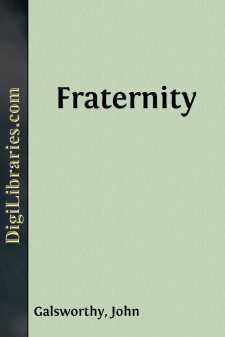Categories
- Antiques & Collectibles 13
- Architecture 36
- Art 48
- Bibles 22
- Biography & Autobiography 813
- Body, Mind & Spirit 142
- Business & Economics 28
- Children's Books 17
- Children's Fiction 14
- Computers 4
- Cooking 94
- Crafts & Hobbies 4
- Drama 346
- Education 46
- Family & Relationships 57
- Fiction 11829
- Games 19
- Gardening 17
- Health & Fitness 34
- History 1377
- House & Home 1
- Humor 147
- Juvenile Fiction 1873
- Juvenile Nonfiction 202
- Language Arts & Disciplines 88
- Law 16
- Literary Collections 686
- Literary Criticism 179
- Mathematics 13
- Medical 41
- Music 40
- Nature 179
- Non-Classifiable 1768
- Performing Arts 7
- Periodicals 1453
- Philosophy 64
- Photography 2
- Poetry 896
- Political Science 203
- Psychology 42
- Reference 154
- Religion 513
- Science 126
- Self-Help 84
- Social Science 81
- Sports & Recreation 34
- Study Aids 3
- Technology & Engineering 59
- Transportation 23
- Travel 463
- True Crime 29
Windows
by: John Galsworthy
Publisher:
DigiLibraries.com
ISBN:
N/A
Language:
English
Published:
1 year ago
Downloads:
22
Categories:
*You are licensed to use downloaded books strictly for personal use. Duplication of the material is prohibited unless you have received explicit permission from the author or publisher. You may not plagiarize, redistribute, translate, host on other websites, or sell the downloaded content.
Description:
Excerpt
ACT I
The MARCH'S dining-room opens through French windows on one of those
gardens which seem infinite, till they are seen to be coterminous
with the side walls of the house, and finite at the far end, because
only the thick screen of acacias and sumachs prevents another house
from being seen. The French and other windows form practically all
the outer wall of that dining-room, and between them and the screen
of trees lies the difference between the characters of Mr and Mrs
March, with dots and dashes of Mary and Johnny thrown in. For
instance, it has been formalised by MRS MARCH but the grass has not
been cut by MR MARCH, and daffodils have sprung up there, which MRS
MARCH desires for the dining-room, but of which MR MARCH says: "For
God's sake, Joan, let them grow." About half therefore are now in a
bowl on the breakfast table, and the other half still in the grass,
in the compromise essential to lasting domesticity. A hammock under
the acacias shows that MARY lies there sometimes with her eyes on
the gleam of sunlight that comes through: and a trail in the longish
grass, bordered with cigarette ends, proves that JOHNNY tramps there
with his eyes on the ground or the stars, according. But all this
is by the way, because except for a yard or two of gravel terrace
outside the windows, it is all painted on the backcloth. The
MARCHES have been at breakfast, and the round table, covered with
blue linen, is thick with remains, seven baskets full. The room is
gifted with old oak furniture: there is a door, stage Left, Forward;
a hearth, where a fire is burning, and a high fender on which one
can sit, stage Right, Middle; and in the wall below the fireplace,
a service hatch covered with a sliding shutter, for the passage of
dishes into the adjoining pantry. Against the wall, stage Left, is
an old oak dresser, and a small writing table across the Left Back
corner. MRS MARCH still sits behind the coffee pot, making up her
daily list on tablets with a little gold pencil fastened to her
wrist. She is personable, forty-eight, trim, well-dressed, and more
matter-of-fact than seems plausible. MR MARCH is sitting in an
armchair, sideways to the windows, smoking his pipe and reading his
newspaper, with little explosions to which no one pays any
attention, because it is his daily habit. He is a fine-looking man
of fifty odd, with red-grey moustaches and hair, both of which
stiver partly by nature and partly because his hands often push them
up. MARY and JOHNNY are close to the fireplace, stage Right.
JOHNNY sits on the fender, smoking a cigarette and warming his back.
He is a commonplace looking young man, with a decided jaw, tall,
neat, soulful, who has been in the war and writes poetry. MARY is
less ordinary; you cannot tell exactly what is the matter with her.
She too is tall, a little absent, fair, and well-looking. She has a
small china dog in her hand, taken from the mantelpiece, and faces
the audience. As the curtain rises she is saying in her soft and
pleasant voice: "Well, what is the matter with us all, Johnny?"
JOHNNY....












